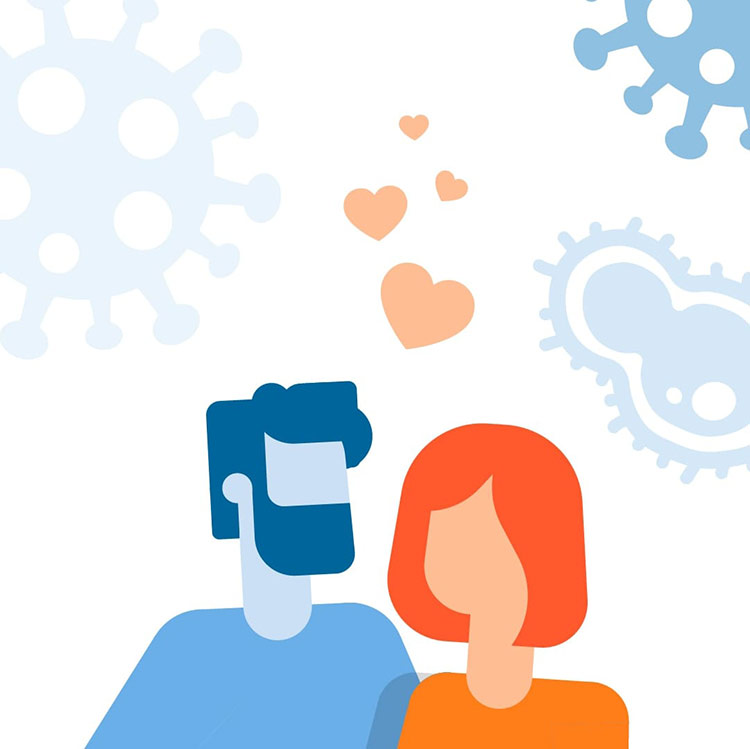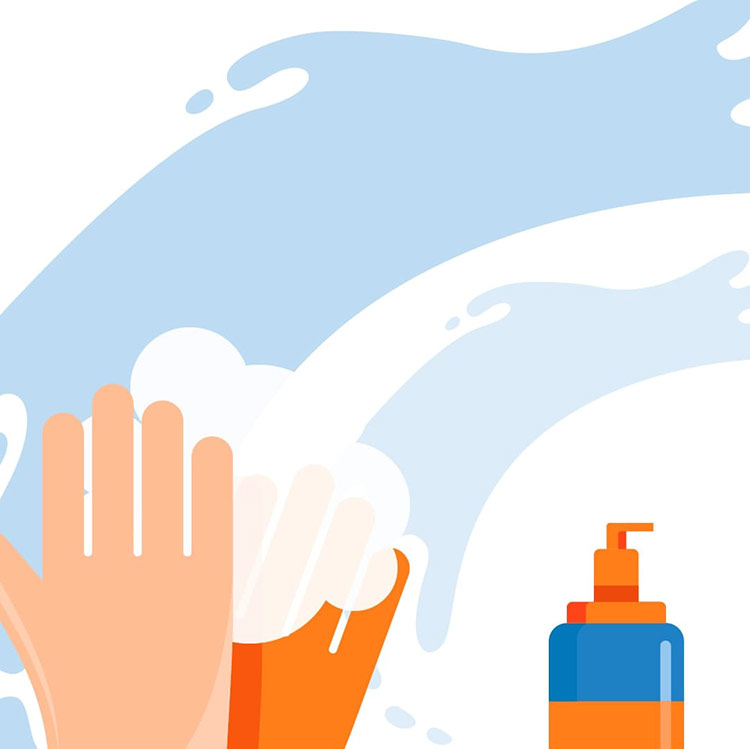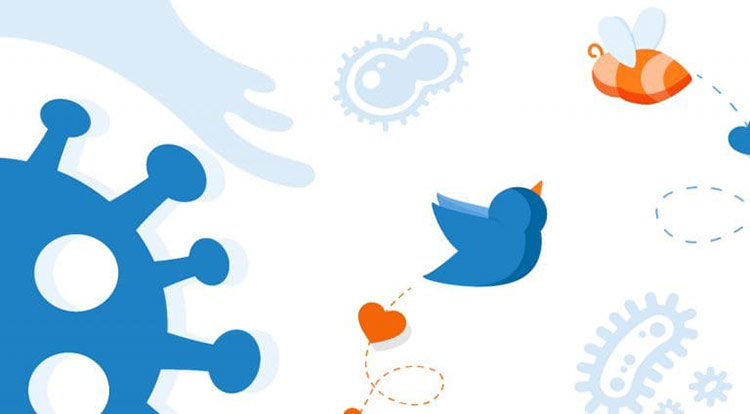There are several diseases that can be transmitted to you or your partner, but can you get the coronavirus from having sex? COVID-19 – short for ‘coronavirus disease 2019’ – is a new (or emerging) strain of coronavirus that was first discovered when it began spreading in Wuhan, China, in late 2019. Since then, the virus has spread worldwide.
In this article, we discuss how the coronavirus is transmitted, the myths surrounding the virus, and what practices can help you stay healthy.
How is the coronavirus transmitted?
According to the Centers for Disease Control (CDC), contracting this virus generally requires being within six feet of an infected person, being exposed to droplets produced when an infected person coughs or sneezes, or touching infected surfaces and then your eyes or face.
This virus is most contagious when people have symptoms, but infected people without symptoms can also spread the virus. This quality is part of why it spreads so quickly. Symptoms of this disease include shortness of breath, fever and coughing.
Can you get the coronavirus from having sex?
Much is still unknown about how COVID-19 can be transmitted, including whether you can get the coronavirus from having sex. While recent studies have found the coronavirus in semen of male patients, these studies were small and further research is still needed to better understand these findings. Currently, there are no known cases specifically spread through sex, but close contact with someone infected with the coronavirus can significantly increase your chances of contracting the disease. The virus has also been found in feces, so it is possible that rimming spreads the virus.
Can you get the coronavirus from kissing?
Because the coronavirus can be transmitted through proximity and respiratory droplets, it is possible to contract this virus through kissing. Whether it comes directly from kissing someone or simply touching their face, physical contact with another person encourages the sharing of bacteria and viruses, including COVID-19. Sneezing and coughing also increase the chance that an infected person will spread the virus particles.

Corona myths
Just as scientific news about the coronavirus has spread, so too do myths that could do you or others more harm than good. Below is a list of misunderstandings surrounding the coronavirus that should be examined critically:
Wear masks
Many people have tried to protect themselves from the virus by wearing medical masks. Although COVID-19 is contagious and can be spread through coughing and sneezing, wearing these masks will not protect you from the virus. In fact, the World Health Organization and the CDC do not recommend that healthy individuals wear medical masks, but recommend that masks be reserved for those who already have the virus and could spread it to others.
If your doctor does tell you to wear a mask, follow the instructions very carefully; many people misuse the masks by touching the front of the masks, throwing them away inappropriately, or wearing them incorrectly.
Using vodka to disinfect hands
Hollywood movies show wounded heroes disinfecting their wounds with vodka or other liquors, but pouring alcohol intended for drinking on your skin is ineffective at killing germs and can irritate the skin and mucous membranes. Additionally, most vodka and other liquors do not contain enough alcohol to be effective (the CDC recommends hand sanitizer with at least 60% alcohol).
Alcohol also won’t remove viruses that have already entered your system, so save your vodka for your next cocktail party. And as always: drink responsibly.
Age groups at risk
It is a common misconception that COVID-19 only affects seniors. Although older people are at increased risk of developing complications from infection, people of any age can contract this virus. Individuals with pre-existing conditions such as lung and heart disease or those with weakened immune systems are also at risk of developing a serious infection.
The death rate
COVID-19 is indeed highly contagious and there have been deaths from the virus. However, as of March 21, 2020, only 4.3% of global infections have resulted in death, as reported by the WHO. Additionally, this percentage may not include those with milder symptoms that did not warrant a visit to the doctor.
Effect of hot and cold weather
While some people believe that warm or cold weather will reduce the spread of COVID-19, the World Health Organization (WHO) emphasizes that there is no scientific data to suggest any effect of weather on this virus.
While many myths exist about this new variant of the coronavirus, there are steps you can take to legitimately reduce the risk of transmission.

How to protect yourself from the coronavirus
Although this virus appears to be relatively easily transmissible, the WHO explains that several hygiene and disinfection methods exist that can help reduce the risk of transmission:
Personal hygiene
- Wash your hands with soap for 20 seconds, especially after going to the toilet or before eating.
- Avoid touching your face, nose and mouth.
- Cover your sneezes and coughs with a tissue (then throw it away!) or aim it at the bend of your elbow.
- Disinfect commonly touched surfaces (such as doorknobs, light switches, and tables) with diluted bleach or products listed by the Environmental Protection Agency as effective against COVID-19.
Other tips and advice
- Avoid people you know have contracted the disease.
- Stay home if you feel sick.
- Avoid contact with other people as recommended by your local government and health authorities.
- Follow CDC guidelines for domestic and international travel.
- Stay up to date with the latest information regarding COVID-19, including its potential impact on your environment.
By following these tips, you will take the necessary steps to reduce exposure to the virus and prevent future outbreaks.
How to treat the coronavirus
Although prevention of disease is preferable, this is not always possible. While there may be a stigma surrounding contracting the coronavirus, there is nothing to be ashamed of. If you suspect you have COVID-19, it is best to get tested by a medical professional, especially if you have a fever or difficulty breathing. Testing for COVID-19 is simple and requires a swab from the inside of your nose.
It is generally recommended that you contact your medical provider by phone or virtually before visiting their office, as your doctor may point you in the direction of clinics or hospitals in your area that are better prepared to handle cases of COVID-19. to deal with.
Limiting travel and social activities also play an important role in preventing the spread of the virus to others. Therefore, carefully follow the advice of your medical care team. You may need to stay in your home until your condition improves and you are no longer contagious.
If you need to be around others, such as family or caregivers, you are recommended to wear a medical mask to avoid spreading the disease to those around you.
As our understanding of COVID-19 continues to evolve, so too do our methods of treating the virus. If you have come into contact with the coronavirus, contact your doctor for the most up-to-date information.

